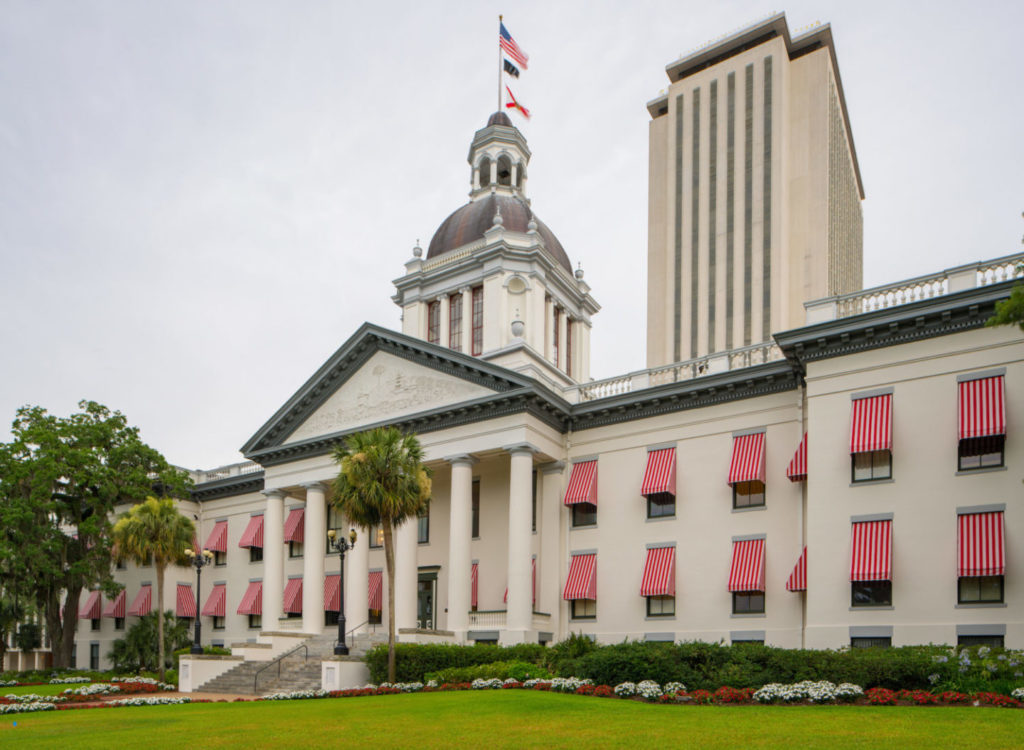Florida House education choice expansion bill gets Senate companion
(reimaginED) – HB 1 no longer stands alone.
State Sen. Corey Simon R-Tallahassee, chair of the Senate Committee on Education PreK-12, on Friday filed SB 202, a companion bill that allows for…

(reimaginED) – HB 1 no longer stands alone.
State Sen. Corey Simon R-Tallahassee, chair of the Senate Committee on Education PreK-12, on Friday filed SB 202, a companion bill that allows for parental involvement and customized K-12 education in Florida through the expansion of education savings account eligibility to all students.
In addition to empowering parents, the legislation also incorporates recommendations from the Florida Association of District School Superintendents and calls for reducing “onerous and excessive regulations” on public schools.
“The right and the responsibility of raising children belongs to parents, not state government. This bill makes it clear that the money follows the child, and parents have a right to guide their child’s education as they see fit,” Simon said a in a news release.
“Here in the free state of Florida, we stand with parents. We recognize that parents are a child’s first and best teachers, and we support the vital and irreplaceable role of a parent to decide what academic experience best fits the needs of their child. At the same time, we take important steps to allow our legacy, neighborhood public schools to thrive in the communities they serve.”
Senate President Kathleen Passidomo, who had previously expressed support for HB 1, a key priority of House Speaker Paul Renner, said SB 202 “makes school choice a reality for every child in every family across our great state by providing parents the chance to guide how and where the funding for their children’s education is spent.”
The Naples Republican added that universal choice also requires a level playing field for the providers.
“Universal school choice means that every school has a chance to compete for students, and their parents can decide the best fit,” Passidomo said. “Additionally, by reducing red tape that burdens our traditional public schools, these institutions, which have served our communities for generations, will have a meaningful chance to compete right alongside other school choice options.”
Former State Sen. Bill Montford (D-Tallahassee), Chief Executive Officer of the Florida Association of District School Superintendents, also weighed in, saying:
“Traditional, neighborhood public schools have been, and will continue to be, the backbone of our K12 education system. We want our schools to be the first choice for parents, not the default choice, and to do that we need to reduce some of the outdated, unnecessary, and quite frankly, burdensome regulations that public schools have to abide by.
“I appreciate the willingness of President Passidomo and Senator Simon to dig in right along with us and cut some of the red tape right away. This is a great first step towards keeping our public schools competitive.”
Education Savings Account for Every K-12 Student Florida currently offers scholarship programs for eligible students (typically students from lower income families) to attend private schools that a parent determines will better serve their particular needs. These programs include the Florida Tax Credit Scholarship (FTC) and the Family Empowerment Scholarship (FES) for students attending private school.
Scholarships are funded at an amount commensurate with the per-student amount appropriated for students attending a public school. Florida also offers a Family Empowerment Scholarship for students with unique abilities, which provides educational savings accounts that allow parents to direct funding for their child either to a private school, or other educational services and materials.
Scholarships for students with unique abilities are funded at a higher per-student amount, determined in part by the type of developmental disability and the cost of services the child may need. Eligibility for all school choice programs is currently limited by state law in the form of an income or enrollment cap.
SB 202 expands eligibility for Florida’s school choice scholarships to all students who are residents of Florida and eligible to enroll in kindergarten through 12th grade in a public school. Under the bill, parents will receive an education savings account to take dollars the state of Florida has appropriated for their child in the public education system and choose among a variety of options to customize their child’s education.
The bill makes several immediate revisions to Florida’s Education Code, identified by the Florida Association of District School Superintendents. For example, the bill reduces hurdles to a five-year temporary teacher certification for anyone with a bachelor’s degree and for those with two years of effective or highly effective service.
The bill provides flexibility to school districts in setting salary schedules and repeals the requirement that a student have one online credit in order to graduate from high school, which is not currently required in private schools.
The bill also offers districts flexibility in facility costs for new construction, and offers student transportation flexibility to improve efficiency, while maintaining student safety. (Current law limits districts to using school buses for transportation.)
Additionally, the bill includes a provision that would require the state Board of Education to review the entire chapter of Florida education statutes and recommend to the governor and Legislature revisions “to reduce regulations on public schools.”
The bill does not specify what regulations would change, but instructs the state board to consider input from superintendents, teachers, administrators, school boards, public and private post-secondary schools, home educators and others to be delivered in a report by Nov. 1.
The bill has been assigned to the Senate Committee on Education Pre-K 12 and is expected to be heard there on Feb. 21.
This article appeared originally at reimaginED.


